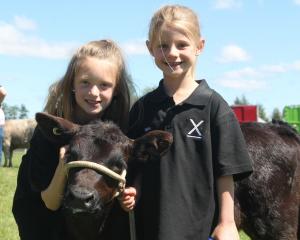
When asked how much the company was seeking, Alliance said it believed funding in the range of $100 million to $150 million, which was indicative only, over the next few years might be required.
However, that would not be provided solely by the equity from farmer shareholders. The company was considering changes including operational efficiencies and changes to reduce working capital needs generally, it said.
Farmers contributed to share capital by deductions from livestock proceeds. The Alliance board has approved an increase of $3 per livestock unit processed.
When contacted, Federated Farmers meat and wool industry group chairman Toby Williams said it was "almost a little unfair" for Alliance to seek capital from farmers at the moment and he expected it would cause additional stress, especially for those affected by drought in the South Island.
Farmers were looking to reduce costs as much as possible until interest rates came down and sheep prices improved.
"It’s hard to ask farmers now to put their hand in the pocket.
"Potentially it’s going to threaten their own businesses.
"It’s taking bread off their own tables to keep the company alive."
Farmers in the high country and those with more cattle might be able to participate, or farmers with no debt, and he would like to see the business case clearly laid out for farmers.
Meat companies across the board had let farmers down over the post-Covid period.
China had been taking so much protein that they had "got lazy" and did not continue with market development.
Farmers had trusted the companies and had been "burnt badly", he said.
He felt there should be some serious management and governance changes as "what they’ve done hasn’t been working".
In a statement yesterday, Alliance chairman Mark Wynne said the co-operative acknowledged times were extremely tough on-farm.
It had explored "all other viable opportunities" to reduce working capital.
Last year, it posted a $97.9m pre-tax loss for the year ending September 30, its worst financial result since 2012 when it posted its first operating loss in 20 years.
The capital raise aimed to restore balance sheet strength, support Alliance to become New Zealand’s most efficient red meat processor, enable it to pursue additional value capture opportunities and ensure the company remained 100% farmer-owned, Mr Wynne said.
The move was signalled at Alliance’s annual meeting in Alexandra in December when then-chairman Murray Taggart said the company was reviewing its fixed assets and capital, and the board was considering options to increase the level of shareholders’ funds.
The red meat sector had been impacted by weaker global market prices, he said yesterday.
Farmers, processing companies and the agribusiness industry in general were facing significant financial pressure and Alliance was "no exception".
"Our current trading position and forecast indicates we will make a modest profit this fiscal year, which will be a significant turnaround from our loss last year.
"This is in line with our financial performance over the last decade where Alliance has been profitable for nine of the last 10 years.
"Over the last 12 months, in particular, we have had a relentless focus on cost reduction, optimising market pricing and inventory in order to reduce our working capital requirements. We’ve made good progress on all fronts."
But a capital raise was needed because, even with the lower prices experienced this year, product prices over the past few decades, and with them, working capital demand, had lifted at a faster rate than shareholder equity growth.
The board had also approved an increase in the number of shares required to be held per livestock unit processed (standard shareholding) from 12 shares to 16 shares per livestock unit processed, Mr Wynne said.
"The deduction will commence immediately, although the majority of the inflows will occur in the next financial year, when hopefully we will see some lift in the market pricing as we exit the downturn."
Over the next few weeks, farmer shareholders would receive individual letters with information on what these changes will mean for them.
Alliance would also provide opportunities in upcoming weeks for farmers to engage with directors.













